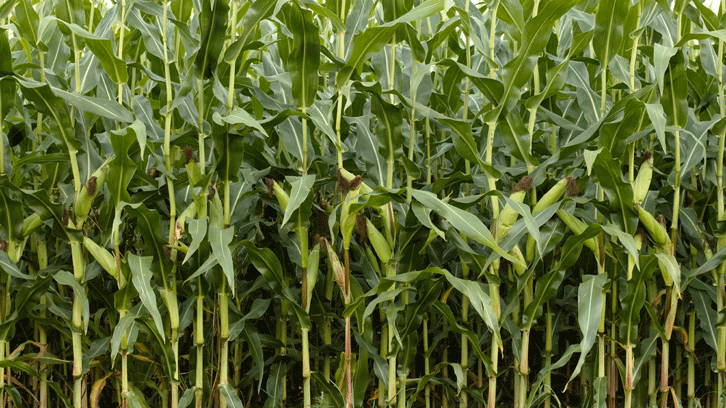New molecular mechanisms explain why corn stalks are indigestible for ruminants

As it is well known by farmers, ruminant animals, such as cows, preferably feed from the maize grain . This happens even when a huge amount of energy (sugars) is stored in the whole maize plant (stalk and leaves).
Maize stalk and leaves are considered as stover due to the fact that an important amount of sugars is “sequestered” by a component that is indigestible for ruminant animals: this “annoying” compound is called lignin.
CRAG scientists, led by Silvia Fornalé and David Caparrós-Ruiz, in collaboration with scientists from the University of León (Spain) and the IRNAS-CSIC in Seville (Spain), have studied the role of two proteins involved in the lignin production in mutant maize plants. The work of these researchers revealed that these two proteins play a key role in the production of different lignin components. In addition, they determined that the removal of their function in the mutant plants allows a better access to the sugars present in the maize stover and this increases its digestibility.
These achievements pave the way to the use of the maize stover, currently considered as an agricultural waste, for nutritional purposes. This improved biomass could be also used for energetic purposes, such as the production of second generation biofuels.
david.caparros@cragenomica.es
Centre for Research in Agricultural Genomics (CRAG)
Consorcio (CSIC-IRTA-UAB-UB)
Edificio CRAG, Campus de la UAB
References
Fornalé, S.; Rencoret, J.; García-Calvo, L.; Encina, A.; Rigau, J.; Gutiérrez, A.; Del Río, J.C.; Caparros-Ruiz, D.; Changes in Cell Wall Polymers and Degradability in Maize Mutants Lacking 3'- and 5'-O-Methyltransferases Involved in Lignin Biosynthesis. Plant Cell and Physiology. Feb, 1, 2017; (58),(2), pp 240-255. Doi: https://doi.org/10.1093/pcp/pcw198

